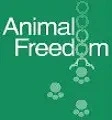An animal is neither an individual nor a subject under the law
Dutch wildlife is protected by laws such as the 'Game Act', the 'Flora and Fauna Act', and the 'Fishery Act'.
These laws do not worry about how many animals are killed as long as the species does not disappear.
Since these animals live freely, their well-being does not have to be guaranteed by law.
Only rules against illegal hunting, such as poaching, are enforced.
Besides wildlife, there are animals that do not live freely, like domesticated animals or livestock.
For these animals, the Netherlands has had the 'Health and Welfare Law for Animals' since 1992, which aims to protect the well-being of each individual animal.
The law has since been updated to give livestock farmers more protection against criticism of intensive farming.
Just because animals are protected by law does not mean they have rights in our society.
Animals are considered property: they can change owners, be leased, hunted, or slaughtered.
Unlike humans, animals cannot hold legal rights or duties.
The law also overlooks something fundamental that should be natural for every living being: the right to freedom.
False protection for livestock
In livestock farming, there are rules that resemble this right, known as the "five rights of farm animals".
Humans apply a double standard to animals.
Different rules apply to wildlife than to farm animals.
In everyday care of animals, there are few clear rules or responsibilities; only extreme neglect or abuse is prohibited.
Read more on whether animals actually have rights.
Read more on freedom.
|

